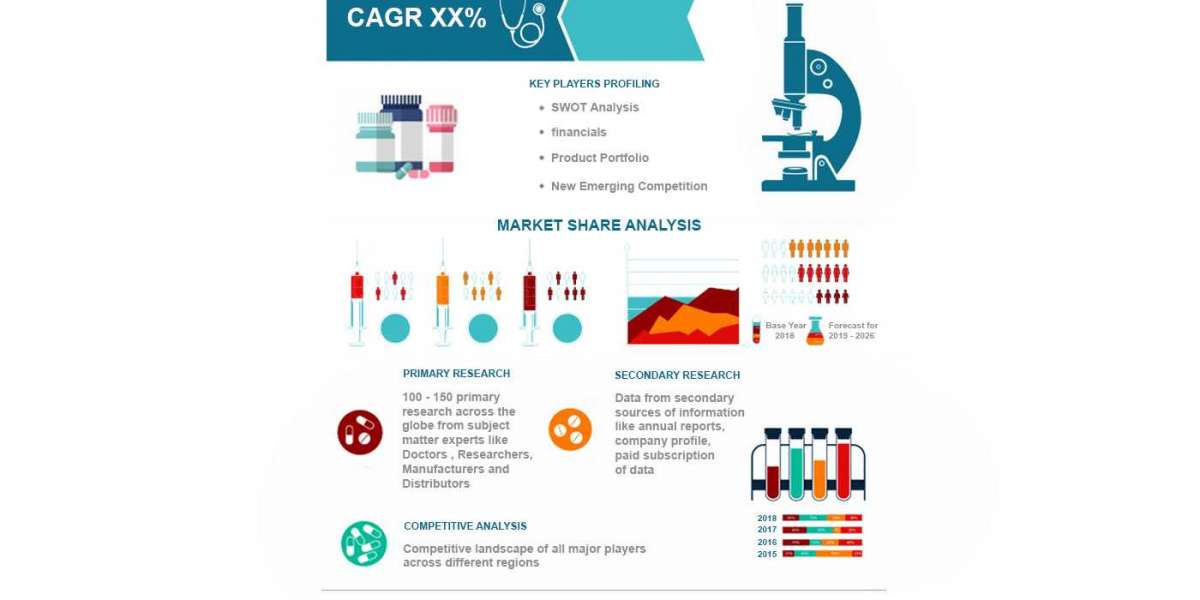E-commerce is a thriving industry, and many businesses are shifting from physical stores to online retail to broaden their reach and enhance profitability. As a result, they confront a difficult decision: which platform to use. Many business owners prefer a self-hosted solution over a hosted one, such as Shopify, since they want to maximize the potential of their online store and have complete control over it.
In terms of self-hosted ecommerce platforms, WooCommerce and Magento are among the most popular solutions available today. The two of them are head and shoulders above the rest of their competitors. Is it possible to select which one to choose by comparing their performance?
WOOCOMMERCE VS. MAGENTO: PLUGINS AND EXTENSIONS
Websites powered by WooCommerce and WordPress have a large range of extensions and plugins that improve the site's functionality and design. The default WooCommerce plugin may be sufficient for some online stores, but the majority will prefer to install additional plugins to take advantage of all the features it provides.
If you follow this path, you will greatly benefit from the enormous community of WordPress developers who are constantly developing new plugins and can be hired to help you achieve your objectives.
Magento extensions
Magento often requires a significant amount of change to achieve the necessary level of functionality. The initial setup is basic, and you’ll have access to online documentation and instructional videos to aid you. Despite Magento's extensive built-in features, you will most likely need to install some extensions.
Extensions are available on Magento Connect and Magento Marketplace. As your store expands, you will almost certainly need to add more attachments to improve your consumers' shopping experience. Magento extensions are expensive, and you'll need the help of a Magento developer to install them properly. Because of the platform's complexity, creating extensions to the store requires a substantial learning curve for users with no prior coding experience.
WooCommerce: Winner
Even though each platform has a lot of built-in features, you'll probably need to install some plugins or extensions to get the most out of them. WooCommerce is the apparent winner because it offers more plugins than Magento and allows you to employ a WordPress developer for a fraction of the cost.
As an added bonus, utilizing free or low-cost WordPress plugins rather than more expensive premium options can save you a lot of money. However, the hefty cost of each extension, as well as the need to hire a developer to properly install it, will make your wallet scream if you decide to add a few extensions to your Magento business.
As a result, WooCommerce outperforms Magento in terms of plugins and extensions. As more WooCommerce goods become available, a broader range of functionality may be offered to an e-commerce site. Only highly profitable e-commerce businesses can afford Magento, which has a premium price tag.
WOOCOMMERCE VS. MAGENTO: DESIGN
WooCommerce and Magento themes can be customized in almost any way, making them popular among developers. Many free and premium themes are available on both platforms, and each theme includes a unique set of features that you can use in your store.
Design for WooCommerce.
You may use any WordPress theme for your online store because WooCommerce is completely integrated with WordPress. WooCommerce integration is a selling point for numerous WordPress themes. Every online store must have a responsive design in order to maximize sales. Otherwise, you may lose a large number of clients because your store will not display appropriately on any device. WooCommerce's seamless connection with WordPress ensures responsiveness.
There are numerous free and paid themes available, including the main WooCommerce theme, Storefront, and several WooCommerce-specific themes. The WooCommerce website offers Storefront for free, as well as a host of useful extensions and child themes. WooCommerce's scalability makes it an ideal choice for new or rapidly growing businesses. Getting a website design firm to create a bespoke theme matched to your preferences and business needs is simple, thanks to the ease with which web designers and web developers can work with it. Many WooCommerce websites are less expensive to create with a website designer than custom Magento websites.
Magento Design
Because Magento was designed from the ground up to be an e-commerce platform, all themes have responsive and user-friendly interfaces. More than a thousand free and paid themes are currently accessible. Premium themes often cost between $80 and $100. If you want a modern, feature-rich shopping experience, Magento themes are a great alternative.
WooCommerce: Winner
WooCommerce is a natural fit for WordPress because it is the most mature and robust platform with which developers like working. Simply put, any theme may be utilized on a WooCommerce website. WooCommerce is an excellent alternative because there are numerous themes and developers to select from. This defect, however, does not affect Magento themes or designs. There are many excellent Magento themes, but WooCommerce wins this round due to its maturity and the vast number of WordPress themes available.
WOOCOMMERCE VS MAGENTO: HOSTING AND PERFORMANCE.
Depending on the e-commerce platform you employ, hosting fees can be expensive. As a result, if your website takes too long to load, many clients will leave, taking their money with them.
So, what about safety? Customers believe that the information they submit, such as credit card numbers and other personal information, will be kept secure. On both systems, a number of security techniques are available for use, some of which come pre-installed, while others require the installation of extensions and some manual labor. While no website is completely secure, Magento does provide specialized security patches, giving it a slight advantage over competing systems. A large percentage of Magento stores are out of date due to the difficulty of implementing these patches and the fact that many store owners do not use them.
WooCommerce
WooCommerce, as a plugin, is compatible with all basic WordPress hosts. If you choose a low-cost host and package, you may expect to spend anywhere from a few dollars per month to a few dozen or hundreds of dollars for a fully managed service capable of handling a large number of visitors. WooCommerce is a lightweight and efficient plugin that uses very few server resources. You will be OK with a respectable shared server and can easily upgrade to a higher package if your store expands rapidly.
Magento
Magento requires more maintenance and server resources than WooCommerce or WordPress. Magento stores that are too complicated and run on subpar hardware can be found. Customers will leave if they have a negative user experience or if the website takes too long to load. Hosting a Magento store on a dedicated server is excellent, but it comes at a higher cost.
It is a tie.
It is difficult to pick the winner based on their overall performance. Stores behave differently based on size and usefulness, independent of platform. Many factors come into play here, including your web server, the quality of your images, and whether or not you use a CDN. This round is a toss-up because the outcome depends on your and your host's performance.
WOOCOMMERCE vs. MAGENTO: SUPPORT
WooCommerce
WooCommerce's support documentation is comprehensive and great; therefore, it is quite likely that it will answer all of your questions. Because it is a component of WordPress, you may also access the WordPress community. You can also request assistance by submitting a ticket through the WooCommerce website.
Magento Community Edition users do not receive official support as the product is free to use. If you want Magento's dedicated support, you must subscribe to the Enterprise Edition, which costs at least $18,000 per year. In addition, you can look for answers in the support manuals and community forums.
WooCommerce: Winner
WooCommerce's large community forums and documentation outperform Magento's in terms of customer support. You can obtain help with WooCommerce by emailing a support ticket or asking the big WordPress community.
Working directly with programmers to troubleshoot and repair technical issues allows for greater customization. WooCommerce is Quikclicks' preferred e-commerce content management system due to its wider support network.
WooCommerce vs. Magento: Easy to Use
WOOCOMMERCE
When deciding on a platform, this is an important consideration. If you want to get your business up and running quickly, use an easy-to-use e-commerce platform.
WooCommerce is a WordPress plugin, so setting up your store is simple and easy. Once WooCommerce is installed, you'll see the on-screen setup wizard, as illustrated in the image below:
To set up and adjust your store's core settings, simply follow these five steps. This configuration includes payment gateway selection, currency preferences, and other features.
MAGENTO
WooCommerce and Magento are both excellent options for e-commerce. WooCommerce provides a straightforward user experience.
When you first start using Magento, it has a steeper learning curve than WooCommerce. To fully utilize the platform's capabilities, you will need to learn some programming and vocabulary. There is a plethora of jargon-heavy terminology that can perplex newbies, adding yet another layer of difficulty.
This is despite the fact that Magento is a very adaptable platform. You can get assistance by consulting their online instructions or posting a query in their comprehensive forum. Nobody is available by phone. We are available 24 hours a day, seven days a week, and 365 days a year to address your inquiries.
If you've never used Magento before, getting it up and running will be a struggle. Once you've completed the first setup, adding products and controlling delivery options become much easier.
WooCommerce: Winner
Magento is a viable option if you are a technical individual with plenty of free time. To achieve the greatest results, you will most likely require the assistance of a developer.
WooCommerce, on the other hand, is the best solution for getting up and running quickly. This platform is extremely user-friendly, making it simple to use. WooCommerce's pre-loaded layouts and stock pictures make it easy to create a gorgeous website, and SEO integration is a breeze. WooCommerce wins this round due to Magento's troubles.
Finally, starting an online store can be a rewarding experience, but only if you use the right platform. Although WooCommerce and Magento have distinct advantages, WooCommerce won all three comparisons.
WordPress' WooCommerce plugin is the best alternative for any size business. It outperforms Magento in practically every area and is simple to scale as your business expands. If you currently have a WordPress website, WooCommerce is an excellent choice for selling your products.
It's worth noting that WooCommerce outperforms Magneto on almost every criteria in this comparison. The WooCommerce app includes improved plugin, design, and support features. As a result, the majority of Quikclicks' e-commerce sites are built on the WordPress platform using WooCommerce.
Even though Magento was designed with e-commerce in mind, WooCommerce remains viable. A few more core functions are available straight out of the box, but expanding your operations and properly utilizing all of the features will require a significant amount of time and money.
Keep in touch with BM Marketing, the best eCommerce development company in Dubai, to stay current on developing subjects in website development. If you have any questions, need assistance, or are looking for a digital marketing agency in Dubai, contact us today! .









